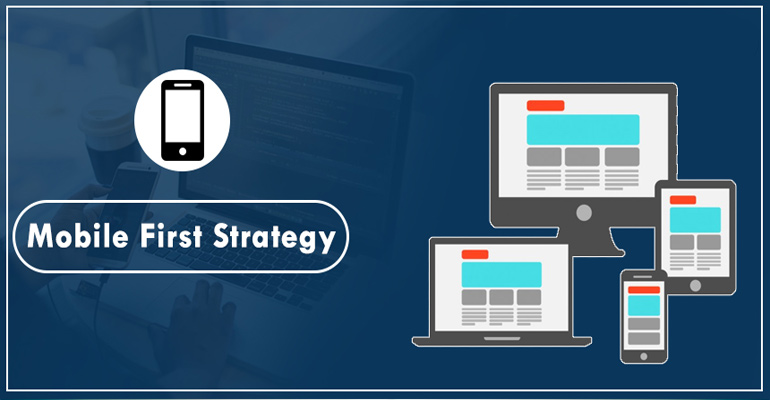As you read this in 2024, there has been changes in technology particularly in the market place hence impacting the marketing of mobile health care particularly by connecting to the patients. As technology is rapidly developing such knowledge is pertinent to individuals wanting to succeed in the healthcare industry. Check out seven innovative mobile healthcare marketing trends that have to be on your radar this year.
1. Personalization: Tailoring the Experience
They claim that personalization is no longer a ‘nice to have’ component of mHealth, but one that is required by patients. Consumers today expect personalized and customized experiences according to their matter of concern. So by 2024 healthcare providers will rely more in data analytics making their m-Health marketing communication more targeted to the audience.

For instance, if a patient has had some certain prescriptions in the past and gets a reminder that refills are due, then this implies excellent understanding of the users. Besides, this level of attention promotes patients’ loyalty and makes them interact more with your services.
2. Embracing Telehealth
Mobile health on the increase due to the provision of telehealth services. Of course, virtual consultations are advantageous for patients, but as patients turn to virtual consultations solutions more frequently, their marketing strategies must change. Specific trends in mHealth marketing for 2024 include increased marketing of telehealth applications which offer the consumers a convenient way to seek care.
The promotion strategies can focus on stressing on SVTC’s time-saving advantages; actual patient comments about positive experiences with teleconsultations. When touting telehealth as a service, healthcare providers can thus encourage patients to incorporate these services into their everyday lives.
3. AI-Driven Interactions
AI is slowly, but steadily finding a way into mobile healthcare marketing, and its influence is slowly assuming worrying proportions. This trend will only continue through 2024, with AI tools used with increased frequency within healthcare organizations especially in the form of healthcare chatbots through which patients instantly interact with doctors. Such smarter solutions are developed to answer simple questions and perform numerous tasks that are essential for healthcare organizations.
The use of chatbots allows the mass, and frequent tasks to be handled very efficiently; common requests like appointment reminders, prescription renewals, and other simple yet relatively time-consuming questions that weigh the healthcare specialists’ workload. Such efficiency contributes not only to internal workings of the organization, but also to timely answering of patients’ queries. As it is, professionals are able to spend more time on patients as well as complications since they do not have to strain themselves dealing with paperwork.

Additionally, the inclusion of AI in mobile healthcare patient satisfaction is improved to a great extent. If patients have some questions or issues they have to be informed and the response gives confidence and helps to feel more comfortable. Rather patients are stuck waiting on the line trying to switch between different options or pressing buttons on their mobile devices we offer them a friendly chatbot that guides them to the information they need.
Also, these communication interfaces powered by artificial intelligence can be highly sensitive concerning the patient history and developed accordingly, which creates improved usability. For instance, a user might converse with a chatbot and the latter may revisit the conversation to replicate live discussion where the interactions were unique and personal. They also help to promote a feeling of an affiliation and to enhance confidence in the healthcare provider.
Finally, it would be important to state that talking about AI integration in mobile healthcare marketing, it is not about simple optimization of the process — this is about making healthcare delivery more sensitive to the needs of the patient. With healthcare organizations adopting this technology, we can expect interactions with patients to be easier, prompt, & most importantly satisfying.
4. Video Content for Engagement
The use of video content has already grown over recent years, and its relevance in mobile healthcare marketing has been proven. By the year 2024 the use of video as a tool for relaying information to patients, counselling, and even sharing success stories will have become an efficient activity in the delivery of healthcare services.
Videos can also be used in social media platforms, website, and even in mobile healthcare applications where issues of complexities in healthcare can be well explained. This is where a 5-minute video of how a procedure will be done will go along way in making patients more willing to engage with their doctors.
5. Mobile-First Strategy
Since the majority of the population look for health information through smartphones, there is a need for the use of mobile health marketing. With technologies advancing in 2024, health care provider’s website and marketing must be designed effectively for mobile users.

This is the trend in marketing mobile health care beyond the issue of considering the mobile first view port in addressing the issue of responsive design. Fast and efficient page loading, smooth site navigation and clear call to action are essential to any m-health strategy.
6. Levi V – Learning From Consumers
Mobile healthcare marketing also benefits from using User Generated Content (UGC). By 2024, the potential of UGC will start to be maximumly used by HC providers as the means to share real-life patient stories via test and testimonials.
Taking patient narratives uses a positive approach because it demystifies the healthcare experience and creates rapport. Including UGC into your mobile healthcare marketing campaigns will break down the barriers and establish linkages with the prospective customers.
7. Prioritizing Data Privacy
Technological advancement in the industry has led to the increase in mobile healthcare marketing so does the merit of data privacy. The patient-former clients seem to be wising up to how they are profiled; managing this issue thus becomes a core value in the marketing strategies of healthcare delivery institutions.

In 2024, therefore, communicating your firm’s seriousness in guarding patient data will be an important component of your mobile healthcare marketing message. Focusing on the aspects of the regulations and measures to ensure patient information security will help to develop listeners’ confidence in your services.
Conclusion
Mobile healthcare marketing environment in 2024 is volatile and to penetrate such environment, it is important to capture emerging trends. By using personalization, telehealth, AI interaction, video contents, mobile first and creative, user generated contents and data privacy options healthcare can improve patient engagement and increase quality of care.
We at Madavi Agency are experts in guiding healthcare marketers on how to make good use of these trends in formulation of effective mobile healthcare marketing strategies. Here’s what you and your colleagues can all do to take your marketing strategies higher and your patients’ expectations further in the new normal.
